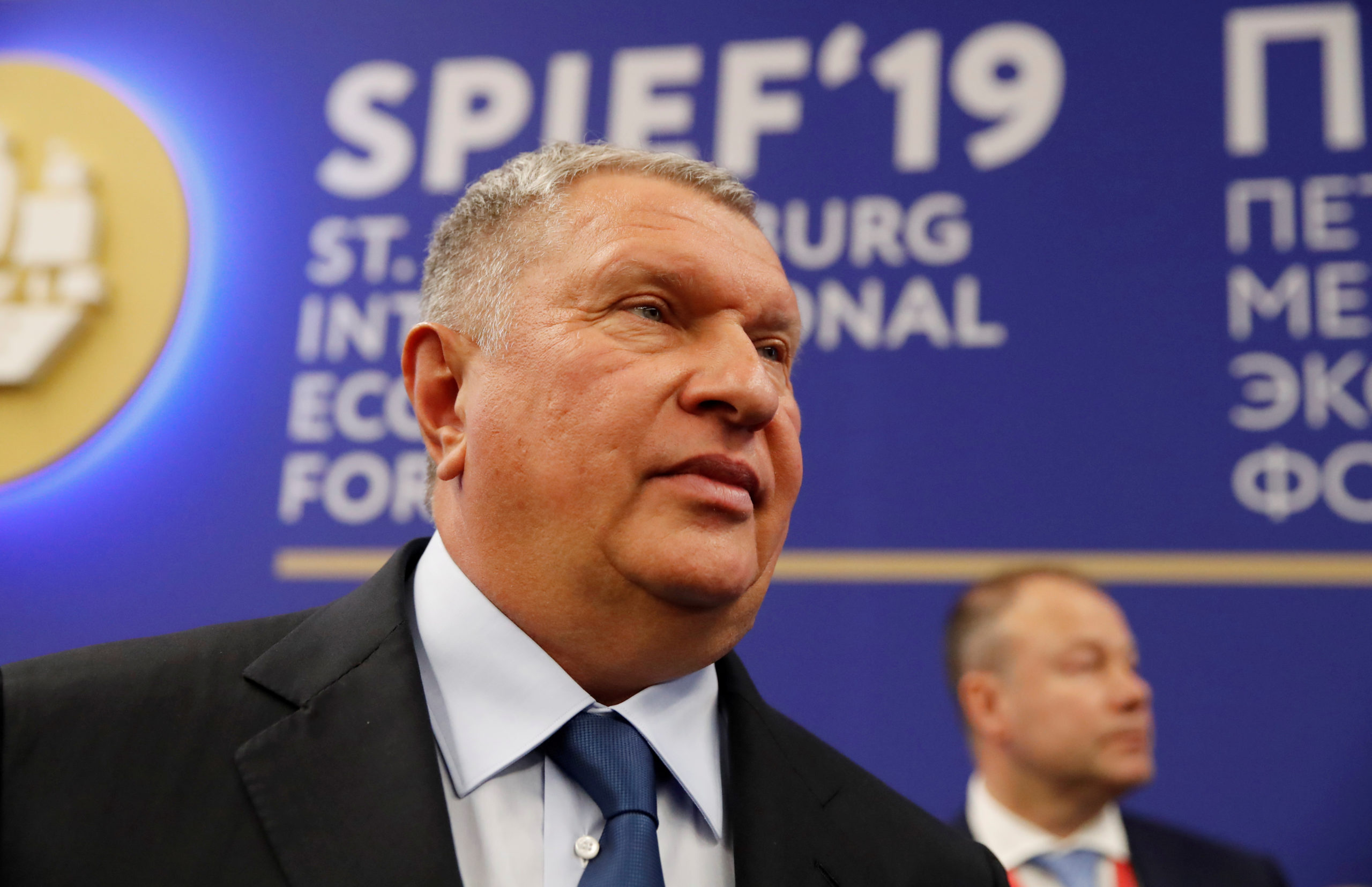Rosneft holds talks with global traders, India and China on Vostok Oil project
Rosneft the project is expected to start shipping oil along the Northern Sea Route by 2024.

MOSCOW — Rosneft has held talks with international traders as well as big global oil consumers such as India and China about their possible participation in its massive Vostok Oil project, the Russian energy giant said on Friday.
Vostok Oil is one of Russia’s biggest oil projects, comparable in size with the exploration of West Siberia in the 1970s or the U.S. Bakken oil province over the past decade.
Reuters reported last month that Rosneft was courting investments from global trading houses to help develop Vostok Oil after trading house Trafigura secured a 10 percent stake in the project.
Rosneft said it sold the stake to Trafigura for 7 billion euros ($8.5 billion) in the project, which is expected to start shipping oil via the Northern Sea Route in the Arctic in 2024.
Didier Casimiro, Rosneft’s first vice president, told a conference call with investors that the company has been in the discussions with international traders and consumers. He did not identify the traders.
Another company manager said that Vostok Oil could become the world’s largest producer of liquefied natural gas with annual output of around 50 million tonnes at around 2030.
In terms of oil, Rosneft has previously estimated Vostok’s resources at 44 billion barrels, enough to supply the world for more than a year. It has said that, later this decade, it could produce 1 percent of global oil at a price competitive with Middle Eastern producers.
Output, profit fall
Earlier on Friday, Rosneft, in which British oil major BP owns a 19.75 percent stake, reported a 79 percent fall in 2020 net income to 147 billion roubles, or $2.2 billion as the COVID-19 pandemic hit demand for fuel.
It, however, it avoided the full-year loss forecast by some analysts.
Global oil and gas producers have seen their finances hit hard over the past year as the pandemic has brought much air and road traffic to a halt.
Rosneft, headed by Igor Sechin, a long-standing ally of President Vladimir Putin, said its average daily oil and gas condensate production declined by 11.4 percent to 4.14 million barrels last year due to a global deal on output curbs.
It expects its oil production to decline by another 5 percent this year following the sale of some depleted upstream oil assets.
Rosneft also said its 2020 revenue fell by 33.6 percent to 5.76 trillion roubles, while its earnings before interest, taxes, depreciation and amortization (EBITDA) dropped 42.6 percent to 1.2 trillion roubles.
Additional reporting by Olesya Astakhova, Katya Golubkova and Oksana Kobzeva.